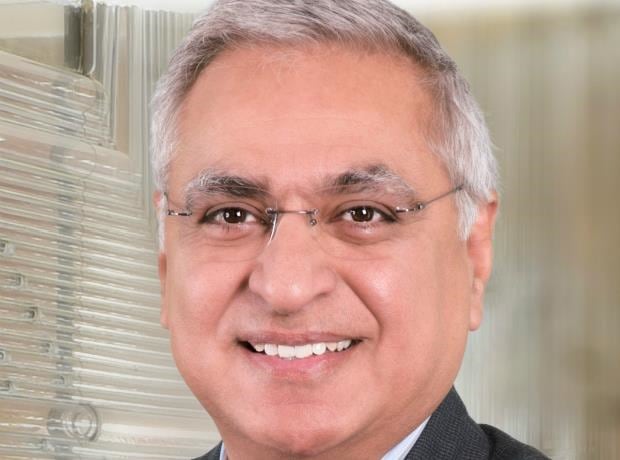Salman Amin has abruptly stepped down as CEO of McVitie’s owner Pladis, effective immediately. The Turkish snacking giant broke the news to employees via an internal memo, citing personal reasons for his departure. In the interim, CFO Sridhar Ramamurthy and European MD Tim Brett have stepped up to lead the company, though no timeline has been given for a permanent replacement.
“Salman Amin has left Pladis for personal reasons with immediate effect,” said the company in a statement. “We can confirm Sridhar Ramamurthy, chief financial officer, and Tim Brett, managing director for Europe and developing markets, have assumed temporary oversight of Pladis.”

Amin joined McVitie’s parent company in 2019, bringing with him a wealth of experience from senior roles at SC Johnson and PepsiCo. During his tenure, he played a key role in reshaping the company’s strategic direction. A major restructuring earlier this year led to the creation of distinct regional divisions: Turkey & Central Asia and Europe & Emerging Markets, the latter overseen by Brett.
The internal shake-up was aimed at streamlining operations and strengthening market positioning. Brett - who joined Pladis in 2022 after a 24-year stint at Coca-Cola - took charge of European operations. Meanwhile, Ramamurthy - CFO since 2019 following a 30-year career at Unilever - has been a key figure in driving financial efficiencies within the business. Together, they bring a wealth of leadership experience to the table, ensuring stability while the company searches for Amin’s successor.

Strong growth amid cost pressures
Pladis has continued its trajectory of impressive financial resilience. In 2024, the company’s UK operations reported record revenues of £984.4m, marking a 14.9% increase from £857.1m in 2023. This growth was largely driven by strategic price adjustments across its wellknown brands, including McVitie’s, Jacob’s, Carr’s, Go Ahead!, Flipz and BN.
The company’s adjusted EBITDA also saw an 11.8% rise, reaching £151.6m, bolstered by cost efficiencies and supply chain optimisations. These figures underscore Pladis’ adeptness at navigating inflationary pressures while maintaining robust profitability.

A cornerstone of Pladis’ growth strategy has been its ‘Compete to Win’ framework, launched in 2020 to unlock business potential through innovation and brand development. The company has significantly increased its investment in research and development, nearly doubling its R&D spend from £4.9m in 2022 to £8.5m in 2023. This focus on innovation has led to successful product launches, such as the McVitie’s white chocolate digestive, which became the company’s most significant biscuit launch in two years, generating £7.6m in sales within six months.
Further solidifying its reputation, Pladis was granted a Royal Warrant by HM King Charles III, a prestigious recognition of its commitment to quality and heritage in the UK snack industry.
In its bid to attract younger consumers, Pladis has embraced bold new flavour innovations. For instance, the company introduced cherry cola-flavoured Jaffa Cakes in mid-2024, which contributed to an additional £19.7m in Jaffa Cakes sales over the past three years. Building on this momentum, in January, Pladis expanded its McVitie’s Gold Billions range with a Chocolate & Hazelnut variant, available exclusively in the UK’s impulse channel for six months. This addition aims to capitalise on the growing demand for indulgent on-the-go snacking options.
The company has also expanded its footprint beyond biscuits. Its Ülker brand has entered the nut and fruit bar market with the launch of Ülker Go Ahead!, targeting health-conscious consumers. In addition, Jacob’s Mini Cheddars range welcomed new limited edition flavours, further diversifying the snacking portfolio.
Moreover, Pladis’ premium chocolate brand, Godiva, unveiled its limited edition Heritage Collection in the US market in late 2024, catering to consumers seeking luxurious confectionery experiences. Additionally, Ülker has risen to first place globally for the second time, reinforcing its stronghold in the snacking sector.
How do I dunk?
In a move that has delighted biscuit lovers across the UK, McVitie’s has taken an innovative approach to an age-old dilemma - over-dunking. A staggering six million biscuits are lost to the bottom of mugs each week due to soggy mishaps. To tackle this crisis, McVitie’s appointed scientist and biscuit aficionado Dr Helen Pilcher as its new chief dunking officer (CDO).
Dr Pilcher’s first mission? Saving biscuits from their soggy fates. Her expert recommendations include optimal drink pairings and the art of ‘micro-dunking’ - immersing biscuits for less than a second to maintain structural integrity. This lighthearted yet strategic initiative has boosted engagement with McVitie’s brand, reinforcing its cultural significance in the UK’s tea-drinking traditions.
A bump in the road
Despite its financial success, Pladis has faced its fair share of controversy. The decision to shut down the Tollcross biscuit factory in Glasgow in 2022 sparked public backlash. The plant - which had been in operation since 1925 and employed nearly 500 workers - was closed as part of the company’s broader strategy to address ‘excess capacity’ and ensure long-term sustainability.
The closure was met with strong opposition from employees, trade unions and Scottish government officials. Criticism only grew louder when it emerged that Pladis had received nearly £900,000 in public funding from Scottish Enterprise between 2015 and 2018 for staff training and development.
The controversy deepened in early 2025 when it was revealed that Pladis was behind a previously anonymous £1m donation to Glasgow City Council. The company framed the donation as a ‘legacy contribution’ to benefit the local community. However, critics - including GMB Scotland and Scottish Labour MSP Paul Sweeney - dismissed it as a token gesture when compared to the estimated £50m annual economic loss caused by the factory’s closure.
“The people of Glasgow deserve more than crumbs from the table of a multinational that made £100m in profits last year,” said GMB Scotland secretary Louise Gilmour.
What’s next for Pladis?

With Amin’s departure, Pladis is entering a critical period of transition. The company has yet to provide a timeline for appointing a new CEO or even confirm whether an official recruitment process is underway. Whoever takes the helm next will need to juggle ongoing financial growth with efforts to repair the company’s reputation, particularly in regions where past decisions have left a lasting impact.
For now, Ramamurthy and Brett will steer the ship, ensuring that Pladis’ ambitious innovation and expansion strategies remain on track. But as the business moves forward, all eyes will be on how it handles both its successes and the challenges that continue to cast a shadow over its operations.





